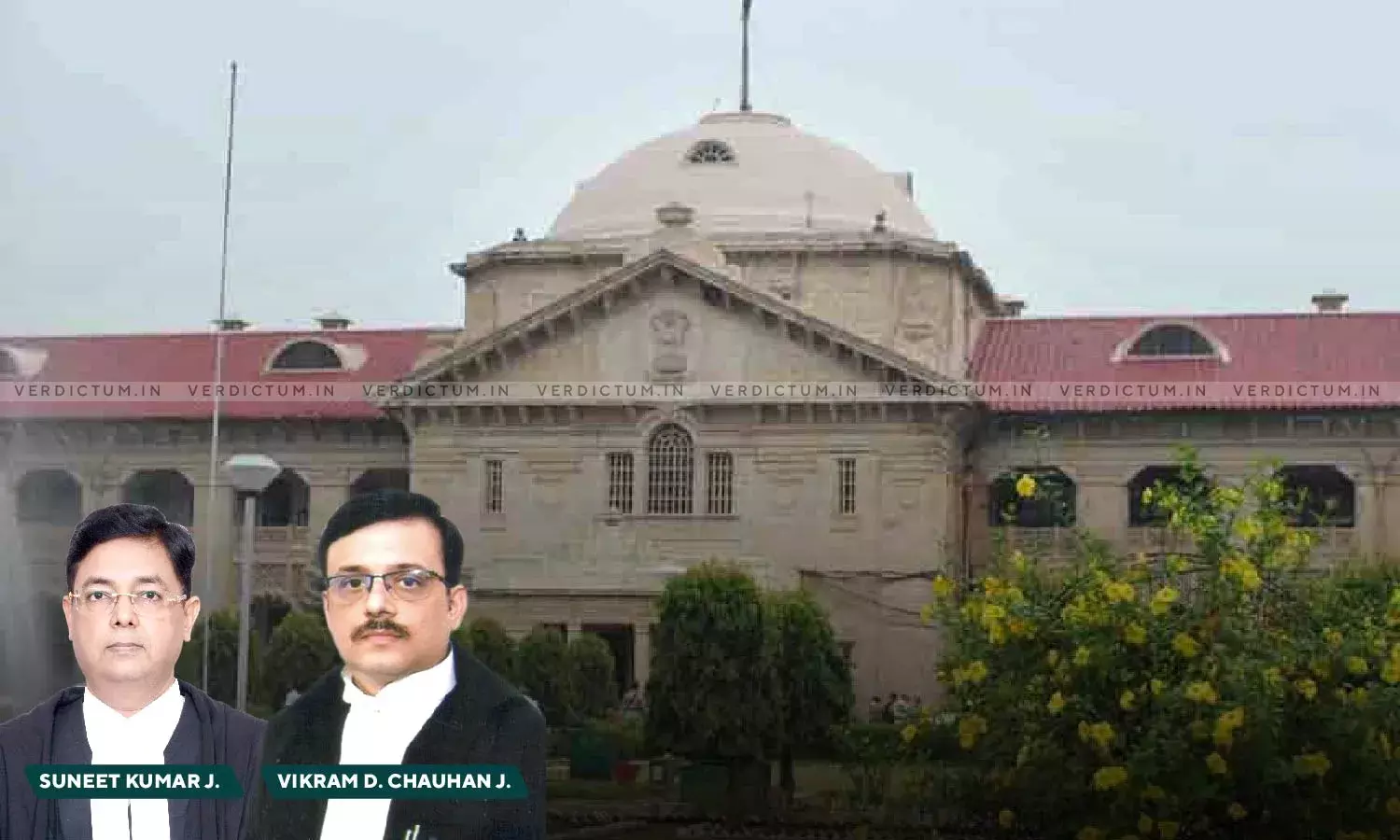Carrying Firearm Weapon At Place Of Occurrence Indicates Intention Of Accused To Cause Death: Allahabad High Court
The Allahabad High Court upheld the murder conviction of the two persons accused of killing a man with the help of a firearm weapon.
The Court said that carrying a firearm weapon at the place of occurrence is itself indicative of the intention of an accused person to cause death or such injury as is likely to cause death.
A Division Bench comprising Justice Suneet Kumar and Justice Vikram D. Chauhan held, “… carrying firearm weapon at the place of occurrence is itself indicative of intention of accused person to cause death or such injury as is likely to cause death. The injury has been caused on the vital part by accused person. Under the circumstances the Appellant-Kailash is liable to be convicted under section 302 of the Indian penal code for the act of murder.”
The Bench further observed that the Trial Court was fully justified in convicting the appellants.
Advocate Gagan Pratap Singh appeared on behalf of the appellant while Government Advocate represented the respondent.
Brief Facts –
In the year 2005, when the informant along with his son was going to meet his second son, a cloth agent made a distress call that his belongings have been taken away forcefully. The informant and his son saw that two persons were running towards the powerhouse while carrying a country-made pistol and a bag. The informant’s son along with others started running to catch the accused persons and caught hold of one of them, who on being caught, fired which hit the son.
The weapon cartridges and bag were deposited at the police station and FIR got lodged. The case was registered against the appellants under Sections 394, 411, and 302 of the IPC and under Section 25 Arms Act. As per the post-mortem report, the informant’s son died due to shock and haemorrhage.
Thereafter, the Trial Court convicted the appellants and sentenced them to undergo a rigorous imprisonment of 10 years along with Rs. 5,000/- fine. The appellants being aggrieved and dissatisfied with such a decision filed an appeal before the High Court.
The High Court after hearing the contentions of both parties noted, “The nature of injury sustained by the deceased and place where the injuries have been sustained it can be said that the Appellant-Kailash fired on the deceased with the intention of causing injury as is likely to cause death or the injuries were sufficient in the ordinary course of nature to cause death. Further the injuries and act of the Appellant-Kailash was imminently dangerous that it must in all probability cause death or such bodily injury as is likely to cause death.”
The Court further asserted that the counsel for the appellants failed to point out any illegality, infirmity, or perversity in the judgment of the Trial Court.
“Considering the overall circumstances and submissions of learned counsel for the Appellants, learned A.G.A. for the State and after going through the evidence and lower court record, we are unable to persuade ourselves in taking a different opinion from that of trial court”, the Court said.
The Court also directed to pay an honorarium of Rs. 25,000/- to the Amicus Curiae for rendering effective assistance in the appeal and transmitted back the lower court record to the Trial Court.
Accordingly, the Court dismissed the appeal.
Cause Title- Kailash v. State of U.P.
Click here to read/download the Order




